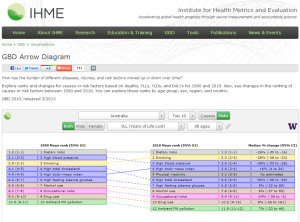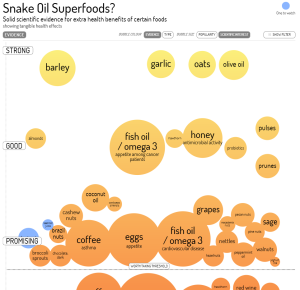It was terrific to connect up with Anne-marie at the Progressive Australia conference. Looking forward to plenty of conversations around these themes…
On 1 February 2014 Australia will celebrate the 30th anniversary of Medicare. After all this time, Labor remains proud that it delivered universal health care to all Australians. During the recent election campaign, Tanya Plibersek, Minister for Health at the time, declared Medicare to be “an enduring symbol of our health system which represents the very best of Federal Labor”. She explained, “Labor is Medicare – we built it, and we’re the only party that Australians can trust to protect and strengthen it.”
The Coalition was slow to embrace Medicare – it vigorously opposed the idea of a compulsory health insurance scheme from the mid-1960s right up until the mid-1990s – but it is now a strong supporter of the scheme. When in government between 1996 and 2007, the Coalition demonstrated its commitment to Medicare by lifting bulk-billing rates (which are considered to be a foundation of universal access to health care) from 68.5% in 2003–04 to 78% in 2006–07. In response to this, Tony Abbott, as minister for health in the Howard government, declared that the Coalition was “Medicare’s greatest friend.”
The bipartisan support for Medicare in Australia stands in stark contrast to the partisan divisions over health care in the United States. The bitter and protracted feud there between Republicans and Democrats over ‘Obamacare’ recently reached a new low when members of the Tea Party movement demanded Obamacare be defunded, contributing to the 16 day shutdown of the federal government.
Most Australians find it difficult to understand why some Americans are vehemently opposed to a scheme that aims to make health care more affordable, and they find the overblown rhetoric about its impact ridiculous. One of the most ludicrous statements made about the impact of Obamacare came from a 2012 Republican presidential candidate and Tea Party activist who said: “If Obamacare had been fully implemented when I caught cancer, I’d be dead.”
When Medibank was introduced in Australia during the 1970s (Medibank was the almost identical scheme that preceded Medicare), debates were heated, but only occasionally did they go beyond the pale; the most notable example was the anti-Medibank posters produced by a medical lobby group that portrayed Bill Hayden as a Nazi. For the most part, however, the tenor of debates in Australia over universal health care has been much more moderate than in has been in the US.
With Medicare now settled policy and the scheme achieving an almost sacred status in the national psyche, debate about its future has almost become sacrilegious. Any suggestion that it is no longer meeting its core objectives – of ensuring our health system is equitable, efficient and universal – sends its long-term advocates scurrying to its defence, fearful that past campaigns to destroy it will be revived. More recent converts to Medicare are also desperate to steer clear of debates about its effectiveness lest they be accused of being lukewarm supporters, harbouring secret plans to undermine it. In some ways, this refusal to have an open discussion about Medicare is just as harmful to progress as the highly ideological and extremist debates evident in the US.
In my recently published book, The Making of Medicare, co-authored with James Gillespie, we argue that we need to start thinking about how Medicare can be reformed so that it can meet the needs of 21st century Australians.
While Medicare has served us well, we need to remember that it was designed in the 1960s and 1970s to meet the problems of that period. Australia was, demographically, a much younger society then, and the health problems people faced normally required very short periods of treatment. Patients, for example, would go to a general practitioner with a minor, short-term complaint and the fee-for-service system worked well when people only occasionally went to the doctor. Hospitals worked on an entirely separate system that dealt with very serious illness, but they, too, were set up to deal with acute illnesses that were either cured or not; ongoing follow-up care after discharge from hospital was a rarity.
We are now living healthier and longer lives, but an ageing society brings with it a greater burden of chronic illness. Instead of short episodes of illness, ending in death or cure, the growing burden of disease comes from serious and continuing illnesses, such as diabetes, chronic heart disease and respiratory illnesses. These need ongoing care and management, often over a lifetime, and few people have the expectation of complete cure.
The Medicare system was not designed to support ongoing care and management. Instead, the fee-for-service system (which also preferences medical care over other health care services) fragments care into short episodes of discrete service delivery. As a result, our current health system is not able to provide optimal care to large numbers of people. Because Medicare was never designed to foster co-ordinated care, it is perhaps not surprising that it now struggles to achieve it.
The challenge for progressive thinkers now is to accept that Medicare is now struggling to meet its core objectives. Because debate about its future has largely been stifled, there are few realistic reform options for policymakers to consider. Fortunately, Labor has a proud history of developing robust health reform policy proposals in opposition. The original Medibank scheme was developed, fully costed and widely promoted under the Whitlam-led opposition during the 1960s and 70s. And the introduction of Medicare was secured by Labor when the Hawke-led opposition negotiated its historic price and incomes accord with the unions. The time is ripe, therefore, for Labor to stake its claims over the future of Medicare by kick starting a debate about how it should be reformed.
Anne-marie Boxall is speaking at the Building a Progressive Future conference, on the panel ‘When Government Fails’ at 4pm on Saturday 2 November. To see the agenda and get your tickets, click here.




